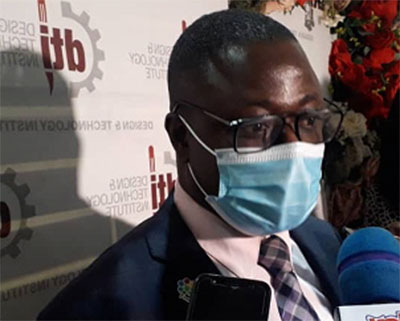Dr. Fred Kyei Asamoah
THE CONSTRUCTION of 32 technical and vocational education and training (TVET) institutions across the 16 regions is set to commence by June as government has secured funding for phases one and two of the project.
With €158 million and €185 million respectively secured and approved by Parliament for the first two phases, work on securing funding for the third phase was in place, acting Director General of the Council for Technical and Vocational Education and Training (COTVET), Dr. Fred Kyei Asamoah, disclosed.
“Within the first six months of this year, construction should begin for the first phase which are nine institutions and the second phase which are 12 institutions and the remaining 11 will follow up,” he added.
The project was part of a five-year strategic plan (2018-2022) to transform TVET which is also linked to a broader Education Sector Plan (ESP) being implemented by the Ministry of Education.
Dr. Asamoah gave the information in an interview on Thursday in Accra at a Precision Quality Conference and Training Launch organized by the Design and Technology Institute (DTI) with the support of Mastercard Foundation.
The conference which was on the theme, “Changing the Narrative: Precision Quality Matters”, was to provide a platform to deliberate on how to improve standards and the quality of players within the vocational and technical players so as to remain competitive in the global market.
To that effect, a five weeks training programme has been designed and launched to enhance technical education and training of some 1000 beneficiaries to meet industry requirements.
The training which also involves two sessions per week will provide soft skills, knowledge on competitiveness in sourcing for high profile contracts and jobs, standardized procedure for precision adherence among others.
It further entails modules on process integration, workplace health and safety, quality and customer relations, people and team development as well as mindset change.
Chief Executive Officer of DTI, Constance Swaniker, suggested the need for legislation that would improve precision standards of artisans in the country.
A principal architect at Spektra Global Limited, Karen Halm, emphasized the need to educate players in the sector on the existing standards before proper enforcement could take place.
Proper supervision and training from qualified personnel, she noted, was also critical in ensuring that the right precision tools were deployed to achieve quality outputs.
By Issah Mohammed


